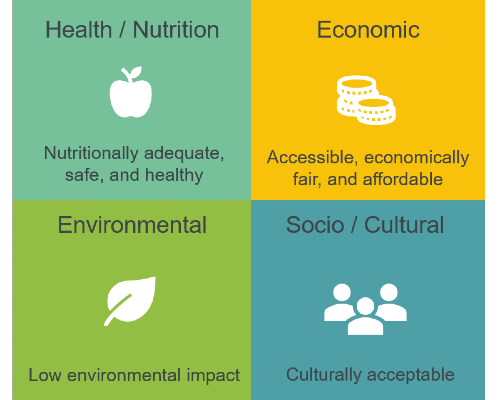With a world population that continues to grow rapidly, food sustainability is undoubtedly becoming essential to maintaining the nourishment of the global population. But with that, comes the great deal of tackling the obstacles of solving world hunger.
What’s the deal about World Food Day?
It’s World Food Day! You may be thinking – what's the real deal about food? Well, it’s something that is so fundamental and crucial to us as humans, so it makes complete sense to have an entire day dedicated to it, right? Turns out, it’s more than just that.
World Food Day is celebrated to promote and improve food security globally, especially during times of crisis. It is also the day where the United Nations launched the Food and Agriculture Organization (FAO) to conduct international efforts in defeating world hunger.
As stated in their official website, there are still too many people unfortunate enough to be left behind of the progress of ending global hunger. Millions of them are not able to afford a healthy diet, exposing them to malnutrition and food insecurities.
Many would think, there must be a supply issue – such that not enough crops are being harvested, leading to inadequate food for the population. In fact, a bigger issue lies within solving hunger. It’s about the limited availability and accessibility to nutritious food that people face nowadays, which is aggravated by other worldly issues such as the COVID-19 pandemic, climate change, rising prices, etc. Such matter is made even worse for the people living in the rural areas, who usually suffer from poverty.
Food Sustainability – Is it the only key to solving world hunger?
At uncertain times like this, many sort into something called “food sustainability”. The term might ring a bell in your head, don’t it? It means the act of responsibility towards the production, supply, and consumption of nutritious food whilst improving and protecting the environment and quality of life in present time and the future. An example would be growing crops that are more sustainable -- such as mushrooms, which can utilize the by-products from other crops as compost.
However, there are a lot of challenges in implementing food sustainability globally. There are countries out there with super accessibility to foods, starting with adequate nourishment on their crop harvests to technological advancements that enable the mass production of food. Even so, they tend to produce an equal – if not, greater – amount of food waste. By contrast, there are also countries with limited access to food in general, making its population highly malnourished.
Food sustainability itself encompasses a wide range of factors that contribute to its achievability. One of them, probably the simplest one, is to reduce food waste production and utilize it for more reasonable purposes instead. Another one is to keep track of what our bodies really need for daily dietary intake. By consuming the right type of foods, we are slowly but surely contributing to food sustainability.
Precision nutrition in food sustainability
Now, the big question is: what can we actively do to achieve that? Well, as the world continues to grow, there is undoubtedly a variety of novel ways to take care of the population developed by healthcare professionals, such as personalized healthcare. A potent example -- precision nutrition -- is a rapidly growing trend that nutritionists have ventured into to provide the optimal and suitable diets for individuals.
Looking at the bigger picture, it is important for programs, regulations and initiatives to focus on their dietary requirements while taking the individual’s condition, culture and economy into account to achieve the aim of sustainable nutrition. For example, overnourished populations will receive a reduction in sodium, calorie and sugar intake meanwhile undernourished populations will receive a promotion of calories, protein, as well as vitamins and minerals. All while maintaining food waste production to be as minimal as possible.
However, on a smaller scale, we can focus on ourselves – paying attention to what our body really needs and selecting specific nutrients to further polish our daily diets. By doing so, we are already contributing to food sustainability.
Nutrigenetics is the study on how the genetic variations in each individual could make different impacts based on their dietary intake. Through this study, we can obtain what is similar to our body’s very own blueprint for its nutritional requirements.
In populations that are not malnourished, it is also crucial to keep track of what’s best and required for your body. This is where nutrigenetics come into play. By analysing each individual on a genetic level, nutritionists and other involved healthcare professionals can determine their most optimal and suitable diet, hence implementing a personalized diet.
Conclusion
After reading all this new information, you might want to keep an eye on your dietary intake and obtain even more information about your real nutritional requirements. In Nalagenetics, we can provide that for you with NutriReady™, our nutrigenetics test. With NutriReady™, you can unveil information related to your micro/macronutrient, food intolerances and metabolism based on your genetic information. Starting your personalized diet journey with Nalagenetics can help healthcare professionals adjust your dietary intake and implement precision nutrition into their practice.
If you are interested in learning more about NutriReady™, check out the details here! To start your personalized diet journey, please don’t hesitate to contact us at admin@nalagenetics.com!






Leave a Comment